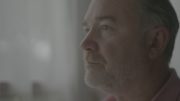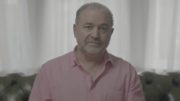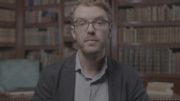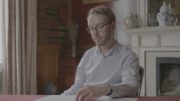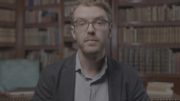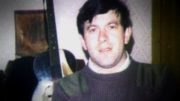A new RTÉ documentary will mark the 40th anniversary of the homophobic killing of Declan Flynn, at a time when homosexuality was illegal in Ireland.
Declan was found in Fairview Park in Dublin, in the early hours of September 10th, 1982. He had been badly beaten, and died from his injuries.
40 years later, retired Detective Inspector Edwin Handcock has never forgotten the case.
“Every time I pass by the Park, I remember the murder of Declan Flynn. Especially when I pass by on the train, because you can actually see the scene. And it all comes back then. Some things you don’t forget.”
DI Handcock recalls being called to the scene, before detailing the forensic evidence he gathered that helped him piece together Declan’s final moments.
“The knees of Declan’s trousers were grass stained, an indication that he was on the ground while he was getting beaten. We checked for defensive injuries and we didn’t see any indication of them, which would tend to suggest he was completely overpowered and didn’t have a chance to defend himself.He must have been absolutely terrified. He died a horrible death” said DI Handcock.
The programme also features contributions from Declan’s family, as they recall the impact his killing had on them and their parents. Speaking publicly for the first time, Declan’s brother, Paul Flynn, lovingly remembers him as a caring person who sometimes needed extra help.
“My mother was very, very good to him. She put a huge amount of effort into helping him. To be fair to him, the love she gave him, he returned that love to her,” he said.
Paul also describes the terrible moment his parents were informed of Declan’s death.
“I’ll never forget the sound that came from my parents. It was like something left their bodies. I think it was the kind of a sound only a parent can make when they lose a child.
Det Insp Edwin Handcock expected to be involved in a lengthy manhunt for Declan’s killers. Instead five males were in custody within hours.
They confessed to the killing, expaining they had wanted “to clear our park of what we call queers”. They had been, in their words, “queer-bashing for about six weeks before and had battered 20 steamers [gay men]”.
In 1982, Tonie Walsh was a young gay rights campaigner who knew Declan from the Hirschfeld Centre, a LGBT+ community centre in Temple Bar. Unfortunately, news of Declan’s death came as little surprise.
“There was a culture of homophobic violence that simmered under the surface of Irish society throughout the 70s and 80s. There was a litany of what we would now consider anti-gay hate crimes: people being beaten up with impunity and people being murdered”.
But, with five males in custody, and confessions from all of them, many, including the Flynn family felt justice was assured. However, they were left horrified when the killers received only five year suspended sentences.
At the time, Senator David Norris was fighting a legal battle to repeal anti-gay legislation. Even so, he found the verdict shocking.
“The judge released them just with a warning, a slap on the wrist. I mean, that effectively, to my mind, was a licence to kill gay people”.
But not everyone felt a sense of injustice. In the killers’ communities, there were celebrations.
“They worked up some celebratory bonfires and had some tinnies. One outrage after another. I mean, it was extraordinarily offensive behaviour”, recalls Tonie.
For supporters of gay rights in Ireland, the case marked a turning point.
“Ireland had failed us. We were on our own, and we had to do something about it,” said Tonie.
A protest march from the city centre to the scene of Declan’s death drew record numbers of gay rights supporters from all areas of society.
“It was the first time that we were joined by our straight allies, student union groups, radical left field political parties and civil liberty groups. And that was really important to feel that level of support from people, because after the court case, we just felt alone,” Tonie remembers.
The Fairview March, as it became known, captured the outrage felt across Ireland at the time. The Case I Can’t Forget traces how Declan’s killing created the impetus behind a change in Ireland’s social values, and contributed to the decade long fight to make homosexuality legal in Ireland.
But for Paul and the rest of Declan’s family, he will always be remembered as their brother.
“It is strange to think that he has become this figure for the gay community now. It is understandable, but at the end of the day, he is not just a headline from a newspaper or he is not just somebody that maybe represents that particular point in history.
I would like people to remember that he was our brother and he was a warm, giving human being. We need to keep ownership of that because we are still mourning the fact that he is no longer with us,” said Paul.
The Case I Can’t Forget: The Killing of Declan Flynn will air on Monday, September 5th at 9.35pm on RTE One and RTE Player.
This special episode is being broadcast to mark the 40th anniversary of Declan’s killing.
Series 3 of The Case I Can’t Forget will be broadcast on RTE in early 2023.
The Case I Can’t Forget is co-produced by Rare TV Ireland Ltd and Green Inc Film and TV Ltd for RTE.
For promotional stills and a link to a screener of the programme please contact fergus.mccormack@rte.ie


